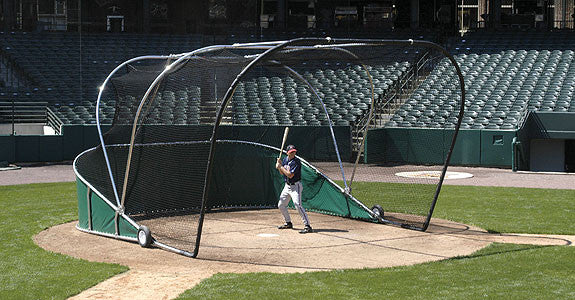I would like to say a few words about young players or even older players concentrating on the single sport to early in life. This is going on because my grandson all of a sudden is decided he didn't want to play basketball this year that he only want to play baseball. I was in particularly in favor but he is 10 years old and he's going to change his mind more than once that's a guarantee. What's happened on a practical level is that there is no baseball for him to concentrate on so the only thing he's doing is going to the cage once in a while it hitting with that's not really practice. But more importantly I think it's a matter he's not getting the life experiences that he would enjoy playing all the games with all his friends. I encourage parents to really get their kids to try many different things. Sports aren't any different than food, entertainment, academic interests, arts and science, all that kind of thing. I don't think there's a parent out there that doesn't hate when their kid just sits in front of the TV or in front of the videogame. But I really don't see that much difference between those two activities only doing one sport during the developmental years.
I'll even add a second story of a young man I know in California that only play baseball up until the time you said during his freshman class, 2016, at that point he decided he didn't like being left out social circle so he was going to play football. As it turned out he was relatively good enjoyed it and says he's going to do it again, now he's playing freshman basketball again doing very well, and then in the spring he will play baseball. The real point of this is that he tried to stay with baseball only up until the time he was 14 years old all of a sudden he decided that he would like to try these other things, you did and he's turned out to be good at it and enjoying all the benefits. Therefore I think the take away would be it's never too late to start doing other things.
If we as parents, grandparents think they were going to build an athlete it's going to get college scholarships, pro sports, or in any way have sports be part of his life from a financial side then were fooling ourselves. The mathematical odds of these things happening are extraordinarily high and then the truth is we spend more money trying to get this accomplished that we never spend on the scholarships if we didn't have the sports. Sports and competition are for enjoyment in the real benefit comes from playing the sport, being part of a group, and having your family be with you while you're doing it.
I wrote this both from first-hand experience with my boys, my grandkids, and what I believed as a coach for over 40 years. What are your thoughts?
Dear Coach
I coach baseball at the 13-15 Babe Ruth level. We work hard with our pitchers holding runners on to avoid giving up really easy stolen bases. At this point, I think our pitchers are doing well at this task. I have a question or two about the second baseman and shortstop and their jobs of helping hold runners on at second base. I feel if we are going to give up a steal of third base, the runner that steals should at least be held on 2B properly before he earns that stolen base on us.
1) Are there different responsibilities for the two positions in regards to holding the runner at 2B vs. a left handed or right handed batter?
2) What should the footwork for the short stop and second baseman involve?
3) Should they be saying anything, tapping their gloves, or etc.?
Thanks for any tips you can offer me in regards to answering my questions.
Dear Kelly
You have this pretty well in hand and I answer that because of your suggestions and thoughts. The decision on who holes a runner at second with distractions, playing close to him, are all dependent upon the batter and where he's most likely at the ball. The general answer is whether he's left or right handed but there certainly can be exceptions as you get to know your opponents. There are several ways simply bluffing, going always a bag, living in front of the runner and backing away, moving up directly behind the runner so he knows you're there. All these things have to be done in synchronization with your pitcher so that you don't get caught out of place. Now your pitcher can help you with bluffs every once in a while, second and third looks (very is looks at the runner), pickoff plays even when there not successful which is second are pretty rare but they keep a record closer. But you are right you got to do a combination of things and you need to make sure a runner knows you're there otherwise he'll become very comfortable and get an extra step or two when the balls hit, we wants to steal, distracting your pitcher, so is a variation of what I've said and above what you said.
Coach Arnald Swift
Coach
My son pitched to one batter in his last game. The bases were loaded when he came in and he unfortunately walked in the winning run. How is this counted against him since none of the runs were his. Is he credited with anything except the walk?
Larry
You are correct, the walk is all your son, pitcher, get placed on his score sheet for that game. The other 3 runner and there actions were the responsibility of the original pitcher. Though I know internally your son feels like it is his fault, but he did not put those 3 runners there, and how would he feel if they scored in some other way EX: pass ball, error, steal those things that he had no control over the result would have been the same and your son (the pitcher) did his job and other did not, that is why it is a team WIN OR LOSS, a single act did not cause this result. Take up an individual sport like, golf, wrestling, tennis, track where you have total control over the situation. He will be fine and I ask you don't worry about statistics, just as the team of which your son is part of to do things right then winning and losing will take care of itself.
Coach Arnald Swift
My name is Trevor, and I have been catching for 7 years. Over the summer, I made sure to study all the footwork of a catcher and everything I could think of. I am currently a freshman in high school playing in open off season to prepare for tryouts in February. I keep telling my coach that I know how to catch, but he won't let me catch at practices or in our scrimmage games. Instead he puts in me in the outfield and plays everyone that he knows in the infield. What can I say or do to make him let me catch? I know I am a good catcher, but every time he asks for catchers, he ignores me, or says that I can catch in a game and forgets I am a catcher. What do I do?
Trevor: Yours is an interesting question, because it has several elements in it that are inferred and are direct questions. Let's handle the direct question: if you have worked that hard catcher for seven years then you really should be pretty decent, but never to get a chance to catch is a little odd. You indicate that you'd be willing to catch batting practice, or even just in practice I would certainly encourage you to go directly the coach and say your willing to catch BP or in the bullpen just so show that I can do it. Would you please give me that opportunity. When you ask it directly like that then he will be forced to give you a direct answer and no coach the world pass up a catcher wanting to work in those two jobs. Now you infer that you tried to and tried to catch and your coach put you out in the outfield with the vague promises he will catch you in a game. Something is wrong there no coach would put the player into the game as a catcher without have watching him go through practice, drills, and all the things of the catcher is required to do. Second question comes about how well are you in the outfield are you more valuable out there defensively along with your hitting skills. As a coach I have to make that decision. Then the other question that you didn't ask but a coach has to decide how good are the players in front of you, as much as you want to work at it has much you have worked at it are you still not as good in all the skills in a catcher takes.
I'm a long ways from saying don't continue to work because your letter indicates that you're willing to work, do all the hard jobs to show you can catch and then in turn try to get into the games as a catcher and you must just continue down that road. But be honest with yourself when you look at how you helped the team the best and maybe the coach is looking at it from that direction not just what you would like to do. Hang in there and continue to work at catching but at the same time to your job when you're playing the game at all those other elements that are involved.
Best of luck let me know how it turns out.
Coach Arnald Swift
Dear Coach
I am coaching a 9 year old baseball team and have been discussing coaching techniques with my assistants. My assistants think we should make players run laps and do push up when they constantly make the same mistake. I am of the opinion that repetition and showing proper technique is the proper way to break habits and correct mistakes. What is your opinion and when should discipline such as laps and push ups be used on the baseball field? Should lack of effort or hustle result in laps and/or push ups and if not what is your recommendation?
Thank you
============================================
Dear Mark
I coached nine-year-olds and laps or out to the fence and back does have its place but in my opinion that places only to get their attention not in any way shape or form for mistakes. Your coaches along with yourself need to teach technique and do the drills that allow the techniques to be used, and reinforce what's correct in what you're trying to teach and running laps and doing push-ups does not do that. Now the separate question is lack of hustle or lack of effort I found that setting against the fence is the worst punishment of all if you don't want to hustle you don't want to try then we don't need you bothering the other people make them sit up against the fence and just watch. So I can answer your question in three ways yes you can make them run to get their attention, but you don't make them run or do push-ups for mistakes in skill technique work, then isolate them if they don't want to pay attention or hustle they're just taking away from your time and the players that are trying to work and learn . You have to distinguish between discipline and punishment. Discipline is the ability to concentrate and do what you are asked to do at the time it needs to be done. Punishment is running, push-ups, isolation and they're meant to get a players attention and teach him the value of paying attention and learning discipline. As a coach you need to distinguish between the two of them with your players.
Best of luck.
Coach Arnald Swift
From Greg
Hi Coach,
Well, it’s been 3 years since I sent this email to you. You said to let you know how things are going. I took your advice and found an academy for my son to attend. It’s a four hour round trip to Springfield, MO to Midwest Baseball Academy. Kyle plays on the USSA 14U majors team. He just turned 14 a week ago. He’s 6’1” 182# and built like a brick school house. They put radar on him in August and he was throwing 87 mph. He carried a .470BA with 18HR.
After summer travel ball we asked the local high school coach if Kyle could practice with the high school team while they played fall ball. Needless to say Kyle was a little intimidated being in eighth grade and playing with juniors and seniors. Before their first game we told him not to be surprised if he didn’t get to play much, if at all. He started the first game at SS and had a fantastic performance. He batted third. His first AB, first pitch, 350’ HR. Second AB first pitch also 350’. He finished 4/5 with triple and single. The high school played 10 games in fall ball. He had 32AB, 8HR, 21 hits, 2 SO. He got to pitch in 5 games, 15 innings, 27 strikeouts.
For my wife and I here’s the best part. Kyle is a straight A student, is loved by all his teachers and class mates. He is a leader in class and sports. We spend so much time on the road together it gives plenty of time for “life’s lessons”. He’s very humble and is not always comfortable with the attention he seems to get from players, coaches, and even umpires.
I know this probably sounds like somebody’s bragging Christmas letter, but I try to listen to people like you when advice and cautions are shared.
Thanks again,
Kyle’s Dad
Greg Fincher
Mixing Sports August 31 2015, 0 Comments
Dear Coach
I have coached baseball for years and have told my kids that baseball and golf do not mix. A lot of golf can be a detriment to your baseball swing. Am I off base with my teaching.
Coach
I can't really agree with you to give the short answer. I see athletics as all independent. When I first started out baseball players did not lift weights, but now we know how to do it and the increased strength has not be gained at the loss of flexibility (that was the worry).
I don't believe one skill takes away from another. We have too many good and very good golfers with in baseball some of them almost PGA caliber.
I understand what you are asking but I think it fallen in the categories of "It sounds like a good idea" but in truth no factual basis.
Sorry to disagree but you and I are two coaches talking.
Coach Arnald Swift
Hello Coach,
My question is what can we do about a hitter that is habitually late with her swing? It doesn"t seem to matter if the pitch is fast or slow!! Her mechanics and bat speed are great! She will be a sophomore at UW Whitewater this year. If she doesn't correct this problem soon, I don't think she will make the team this fall.
Thanks Tom
Tom
You're concerns are well-founded, because if the situation is as you describe no matter what pitch speed or type that she is always behind and misses the ball or hits it to the right side I will almost guarantee that
she's thinking too much.Here's a few things that you might try and ask her to do which by the way she has to do you can't do that for her.
1. While she is standing in the on deck circle she is to review several facts so she's not in her mind before she ever gets into the box-- what did this picture to me last time, what's the situation I'm going to be faced
with outs, runners, defensive position anything that could affect my time at bat she needs to have those answered within her mind before she ever gets into the box.
2. During practice she needs to be told to swing at and hit every pitch no matter what. What this is going to do is take away any thought process and you will be amazed many if not all the pages she puts the bat on.
I've even done this as a coach in a game but I'm going tell you right now her coach is not going to allow it during college game but she might pull it off in practice situations, scrimmages, doing our own.
3. Do this drill against the machine or against a real pitcher and that is what the bat down and watch the ball making a decision whether to swing or not mentally and never really doing anything if she could find the
time and the ability to look at 10 to 15 pitches with no bat it will make a big difference in how she's looking at pitches and in making the decision.
Because in a nutshell that's the problem she's thinking too much and therefore always late and always behind so we need to try to get as much of that out of the way before she gets into the box.
I hope some of this create some thought and even some help and best of luck let me know how it all works out.
Coach Arnald Swift
===========================================
Dear Coach
My son is 8 years old, he has been playing baseball since he was 4 and I've worked with him since he was 2. My question is he kills the baseball when I throw him BP and when I pitched to him last season in coach
pitch but now he has to hit off of player pitchers and he is pretty much not swinging the bat at all. He just stands there and when I ask him about it he says that the pitches were not strikes. How do I remedy this? He just made a 9 year old select team and I have to fix this before the season starts or he is either going to lead the league in walks or strike outs via looking.... What is frustrating for me is he has a ton of power, he is
4'9" 100lbs and hits lefty, I know how to fix mechanical issues but this one is mental.
Thanks!
Sam
Dear Sam
Let's make sure of one thing first off the bat does he have good mechanical skills and does he batting practice pitching, tee work, soft toss work well and consistently. My guess is you're going to answer yes then I have to agree 100% that it's all mental. What your boys doing is he thinking way too much and not just seeing the ball and hitting it. I don't know if you have control on are not but if I was his coach and I saw these things I would start to correct it by telling him that he has to hit the next pitch no matter what and if there are runners on base and we can collect hit-and-run, but in reality what were trying to do is take the decision-making out of his hands and make him swing at the next pitch the matter where it is. You will actually need to do this for an entire game and yes he may swing at some bad pitches anyway make an easy out or two but he will swing the bat he will make contact I promise you that. It's a very odd thing when you take away the decision-making, batter that actually is pretty decent they almost always get the ball the matter where it is in the strike zone out of the strike zone it doesn't make a difference they will make contact because their swing is good and they're not deciding if I should or shouldn't swing they know that already so they're just trying to get the ball and they will. Now if you can't do that a game because you don't have the control and what you need to do is go in the cage and tell him swing of this one no matter what don't swing at this one no matter what and start to take away the decision-making. You're just trying to get him comfortable with looking at the ball coming at him and swinging at it not whether it's a ball or strike not whether it's a curve or fastball just see the ball and hit. You will be amazed at how effective that is.
Please let me know how turns out.
Coach Arnald Swift
Dear Coach
My 8 year old has a good swing but does not hit the ball in the game. We play in a coach pitch league so the pitches are normally very good. Can you give me some suggestion for us to work on.
============================
I do understand your problem with little kids. As a matter of fact I do have a couple of things that you can do that will really help.
First and foremost you need to find yourself a protective screen for in the cage and place it in front of home plate. Then get you a 5 gallon bucket and turn it upside down and set behind the screen set up about 10
feet away from the batter. Now what you need to do is reach around the outer edge and underhand toss the ball to your batter. This is called front toss in it works with little kids better than soft toss from the side. You
will notice very quickly that for some strange reason, it must be the physics, that little kids can hit a ball thrown underhand. Then after you've done at for a couple of rounds give each kid like five swings have them
hurry in and out so they keep moving like you said the attention span is a big deal. Then in the third or fourth round flip it over hand from the same position so that you're down to there level and not standing above
them. You will be surprised how much better they hit I wouldn't even worry about the pitching machine until the game. What you're trying to develop his hand eye coordination.










